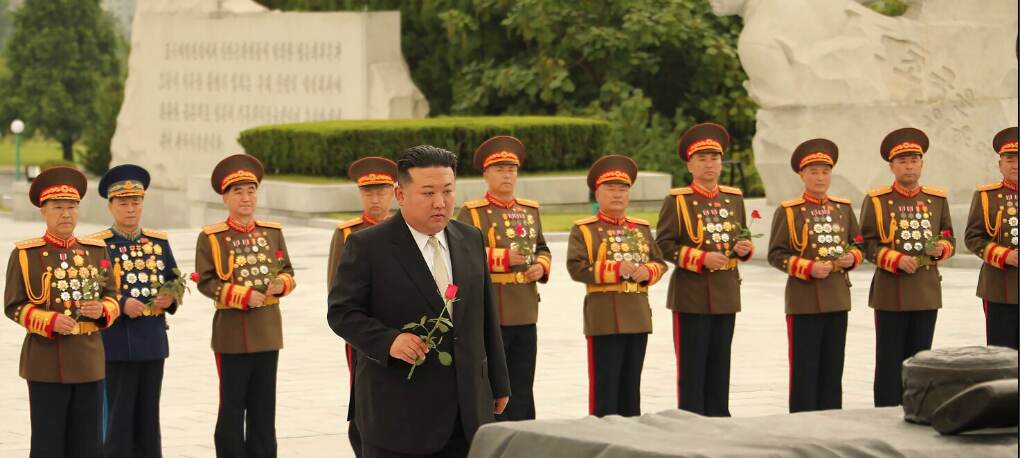Russia and China Extend Olive Branch to Isolated North Korea as Armistice Anniversary Approaches
Russia and China send government delegations to North Korea for armistice anniversary events, showcasing partnerships amidst escalating nuclear tensions with the US, South Korea, and Japan.
Both Russia and China are sending government delegations to North Korea this week for events commemorating the 70th anniversary of the armistice that halted fighting in the Korean War.
The visits indicate that North Korea is opening up after years of isolation and is keen to showcase its partnerships with authoritarian neighbors amidst escalating nuclear tensions with the US, South Korea, and Japan.
According to North Korea's state media, a Russian delegation led by Defense Minister Sergei Shoigu arrived in Pyongyang and was greeted by senior North Korean officials, including Defense Minister Kang Sun Nam. The visit is expected to strengthen relations and mark an important stage in the development of bilateral cooperation.
China's ruling Communist Party is also sending a mid-level official, Li Hongzhong, with the aim of restoring exchanges between the two allies. North Korea has been preparing for large-scale celebrations of the armistice anniversary, which are likely to culminate in a military parade in Pyongyang.
It is expected that North Korean leader Kim Jong Un will showcase the country's most powerful, nuclear-capable missiles designed to target neighboring rivals and the US. Kim, along with top defense and foreign policy officials, visited cemeteries to express gratitude to Chinese soldiers who fought alongside North Korea during the war, referring to them as "martyrs" immortalized in the hearts of the Korean people.
The Korean War, launched by North Korea in an unsuccessful attempt to conquer its southern rival, ended with an armistice but without a peace treaty. As a result, the border between North and South Korea remains one of the most tense in the world.
The region is currently experiencing heightened tensions due to increased weapons tests by North Korea and military exercises conducted by the US with South Korea. Some experts believe that North Korea may ramp up its weapons tests around the anniversary of the armistice.
Since the beginning of 2022, North Korea has conducted around 100 missile tests, taking advantage of the distraction caused by Russia's war on Ukraine to accelerate the expansion of its nuclear-capable weapons.
North Korea has also aligned with Russia over the conflict in Ukraine, accusing the US-led West of implementing a hegemonic policy that forced Russia to take military action to protect its security interests. The Biden administration has accused North Korea of providing arms to Russia to aid its fighting in Ukraine.
Both Moscow and Beijing have been impeding US efforts to strengthen UN Security Council sanctions on North Korea due to its missile tests. China has joined UN sanctions against North Korea over its missile and nuclear programs but remains its most important economic and political ally.
China is committed to preventing the collapse of North Korea's regime as it could lead to various dangerous and uncertain factors, including a wave of refugees, a scramble for control of North Korea's nuclear weapons, and the sudden presence of South Korean and American troops along China's border.
Despite the lack of information about discreet contacts between China and North Korea, China has a long history of preventing the collapse of the Kim regime. Chinese leader Xi Jinping traveled to North Korea in 2019, leveraging their ties to seek concessions from the US and its allies on regional security arrangements. The visits, however, were suspended as North Korea closed its borders to prevent the spread of COVID-19.




